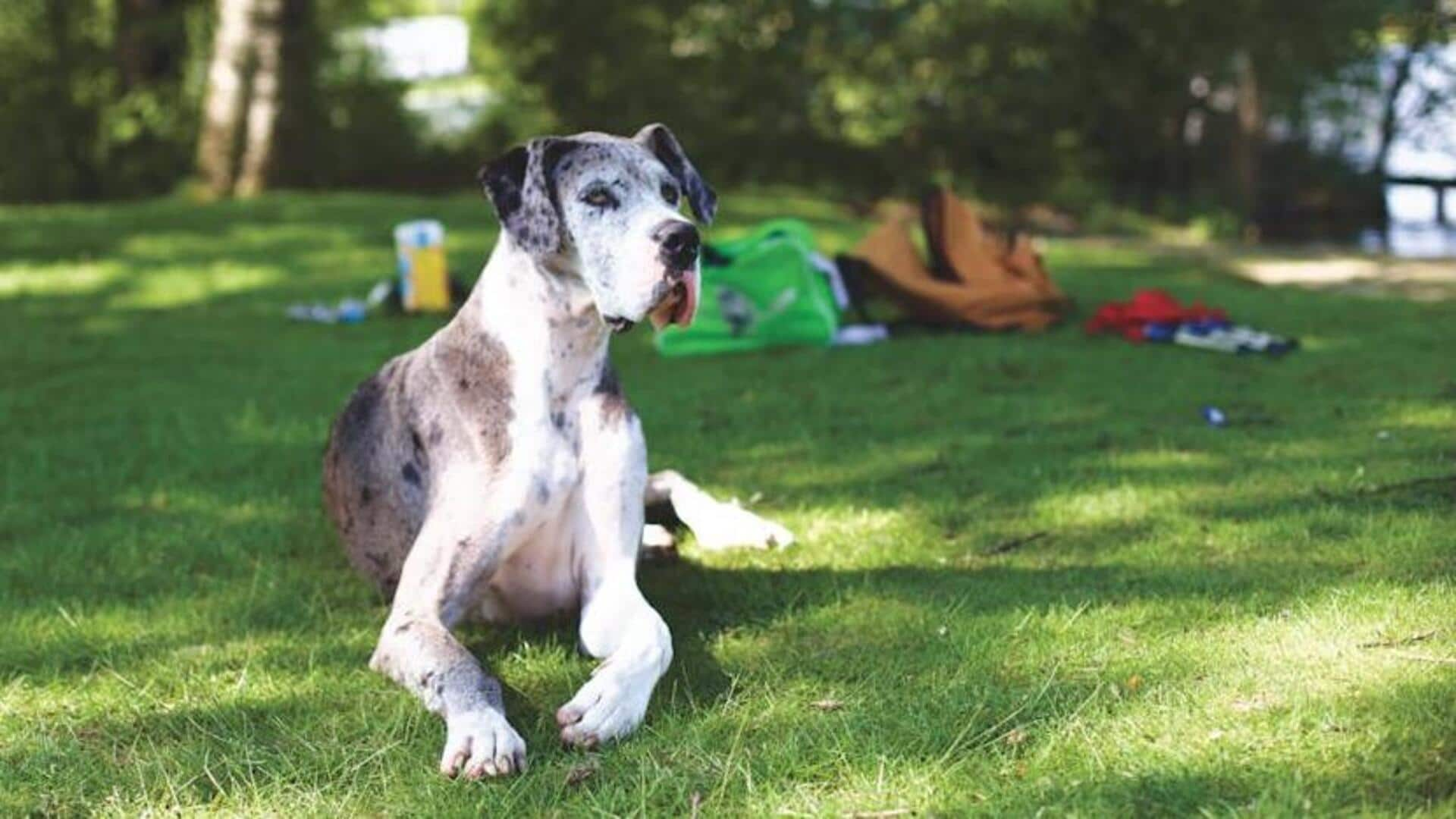
Training your Great Dane: A guide
What's the story
The Great Dane, with its impressive size and elegant bearing, is a breed that naturally garners admiration. These gentle giants may look imposing, but they are typically genial and well-behaved companions. To ensure these characteristics flourish, it is crucial to begin training and care early in their lives, guiding them to mature into disciplined and amicable adults.
Tip 1
Establishing leadership
When training your Great Dane, it's essential to establish yourself as the leader. Consistency in your approach is crucial. Always use firm, clear commands and maintain a calm and assertive demeanor. Early socialization plays a significant role in curbing any aggressive tendencies that may stem from their instinct to protect. Employing reward-based training methods is highly effective in promoting and reinforcing their positive behavior.
Tip 2
Creating a routine
Establishing a routine is vital for Great Danes, as it helps them adapt to living in a home environment. By setting consistent times for meals, bathroom breaks, and exercise, your Great Dane will learn what to expect each day. This structure is key to preventing anxiety and behavioral problems that can arise from uncertainty, ensuring a well-adjusted and content companion in your sizable pet.
Tip 3
Health-centric training
Great Danes undergo rapid growth, which requires careful management to avert joint issues. It's crucial to incorporate low-impact exercises into their training regimen, favoring activities like leisurely walks and swimming. These exercises support joint health without causing strain. High-impact activities, particularly excessive jumping or running, should be avoided to prevent potential damage to their developing bones and joints during these critical growth phases.
Tip 4
Mental stimulation matters
Mental stimulation is crucial for the intelligent Great Dane, on par with physical exercise. Training that includes puzzle toys or scent work is vital to keep their minds engaged. Such activities prevent boredom, which can lead to unwanted behaviors like chewing or digging. An active mind contributes to a Great Dane's overall well-being, ensuring they remain content and well-mannered companions.
Tip 5
Positive reinforcement techniques
Great Danes thrive with positive reinforcement training, as their sensitive nature means they don't respond well to harshness. Avoiding fear or stubbornness is key; instead, opt for treats, praise, and affection to encourage and reinforce the behaviors you desire. This gentle method of training not only promotes obedience but also nurtures a trusting relationship between you and your Great Dane.